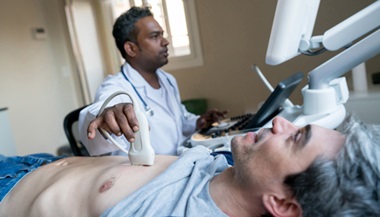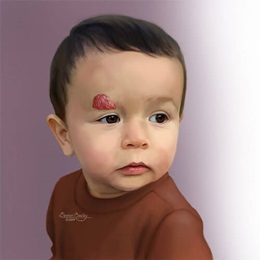Vascular Abnormalities
The vascular system (network of blood vessels) in the brain of newborns, infants and growing children may be affected by rare disorders. Most of these conditions can be successfully treated. The most common of these problems include:
Symptoms of vascular abnormality can include:
- Seizures as the first sign of trouble
- Head growth out of proportion to the body
- Acute onset of headaches
- Stroke like symptoms
Diagnosis of a Vascular Abnormality
If a child develops a cerebrovascular condition (a condition relating to the blood vessels in the brain), a thorough evaluation by a pediatric neurosurgeon can diagnose the problem.
Your pediatric neurosurgeon is likely to conduct a thorough physical and will ask for a detailed family and patient history. Brain scans, including MRI scans plus MR angiography, or MRA, are likely to be part of your child’s work-up.
Treatment for a Vascular Abnormality
Sometimes in the case of a bleeding vessel in the brain, a pediatric interventional neuroradiologist can treat the problem by injecting various materials into the blood vessels to help stop the source of bleeding.
This treatment is called embolization, and sometimes it alone is enough to resolve the problem. Embolization also may stem the bleeding enough to make it easier for pediatric neurosurgeons to perform surgery so that the problem may be corrected.
Surgery Options
Brain Aneurysms
Your child’s pediatric neurosurgeon will determine the best course of surgical treatment, which may involve one of these procedures, depending on the location and size of the aneurysm:
- Endovascular coiling (sealing the aneurysm from the rest of the circulatory system)
- Open craniotomy and clipping (sealing and clipping the aneurysm)
- Artery bypass and occlusion
- Flow diversion with stents
AVM
The goal of surgery is to correct the vascular abnormality. Other forms of treatment are available, like embolization, discussed above, and radiosurgery treatments, which use focused X-rays to burn away the abnormalities.
The pediatric neurosurgeon will discuss the specific advantages and drawbacks to these treatments with you.
Moyamoya
Your pediatric neurosurgeon will rebuild the blood supply of the carotid artery, which is the main blood supply for the anterior brain.
After Surgery
Follow-up care is extremely important in tracking your child’s recovery. Your pediatric neurosurgeon will schedule follow-up appointments to make sure your child is making progress.




